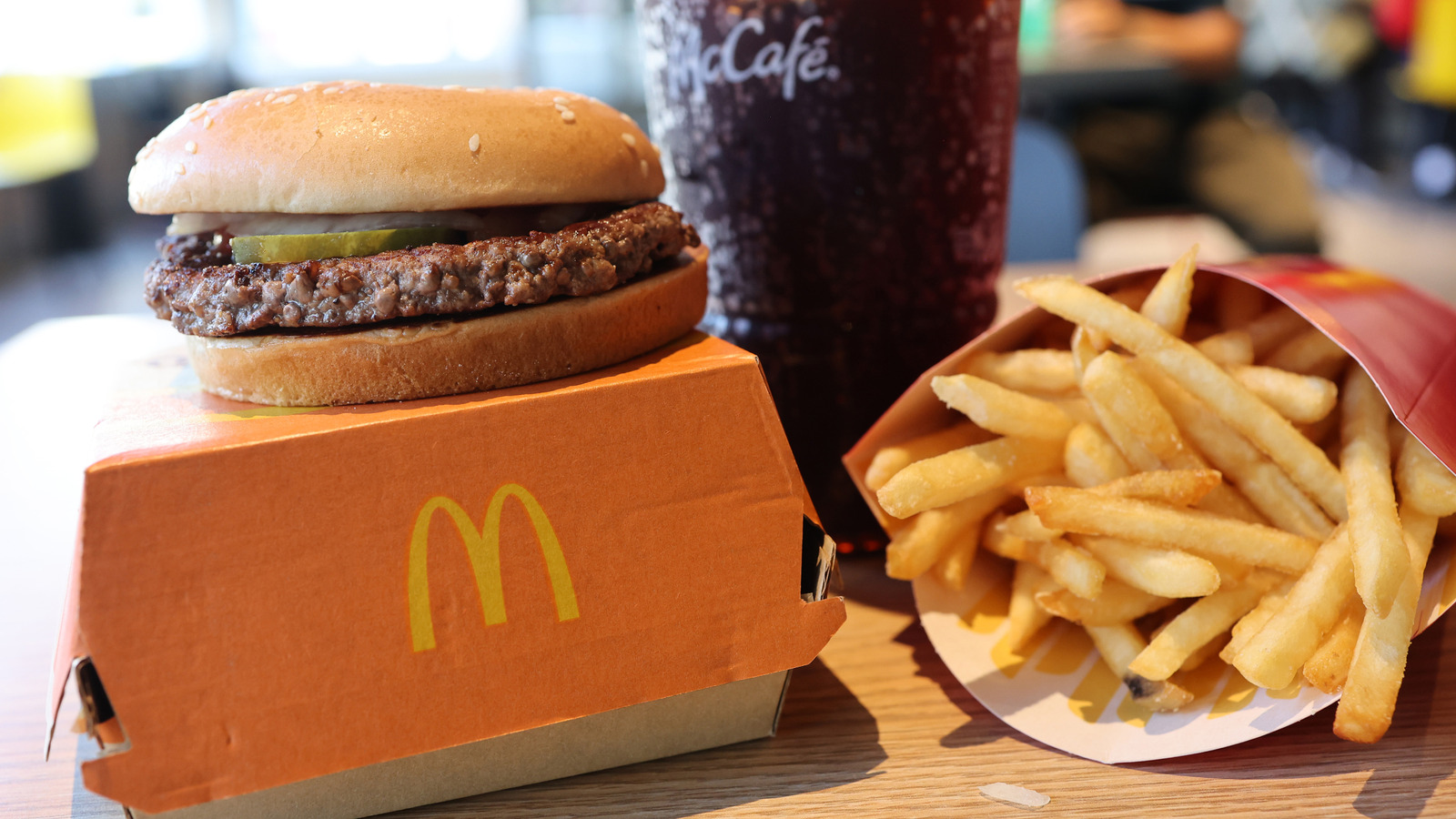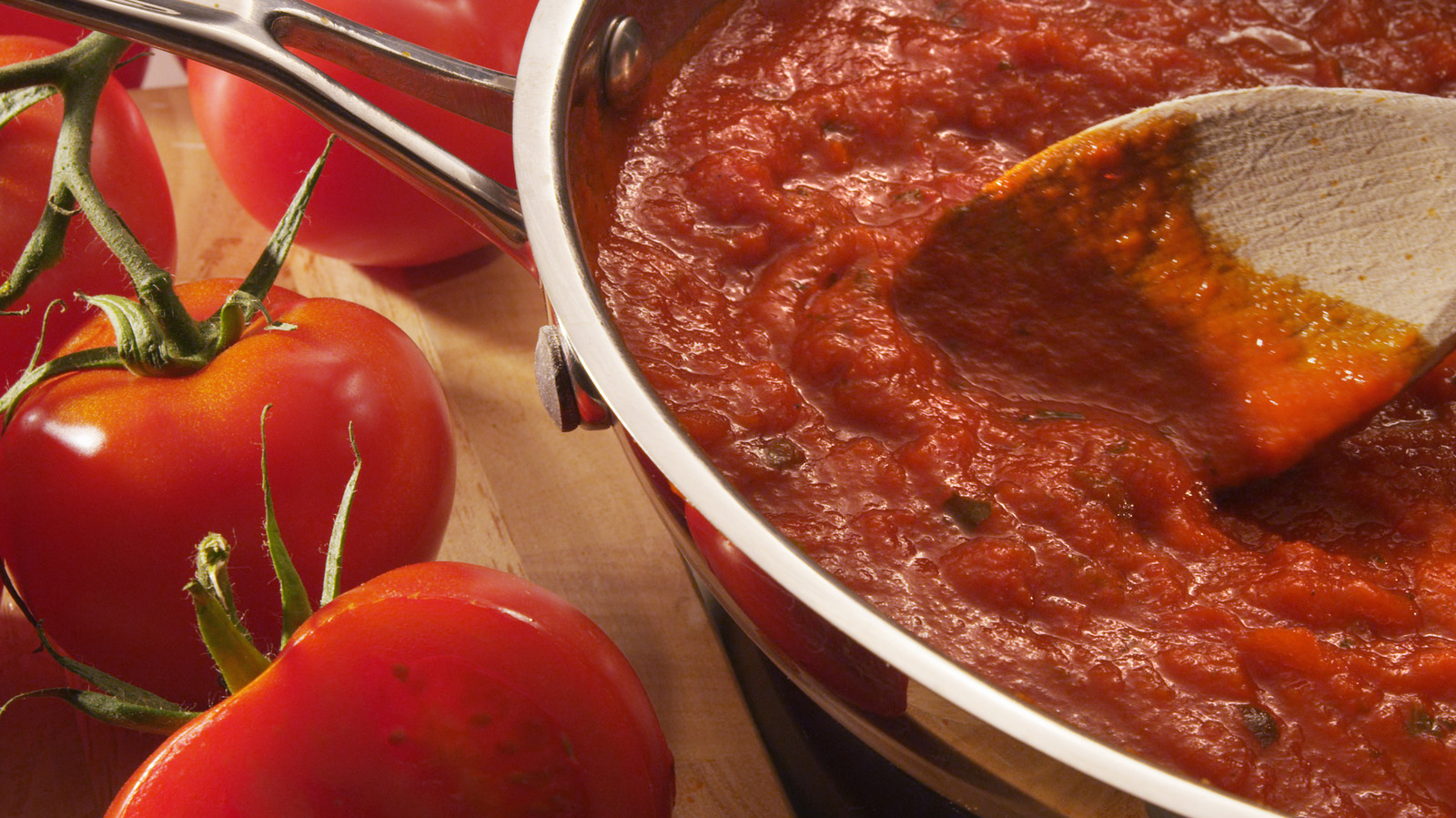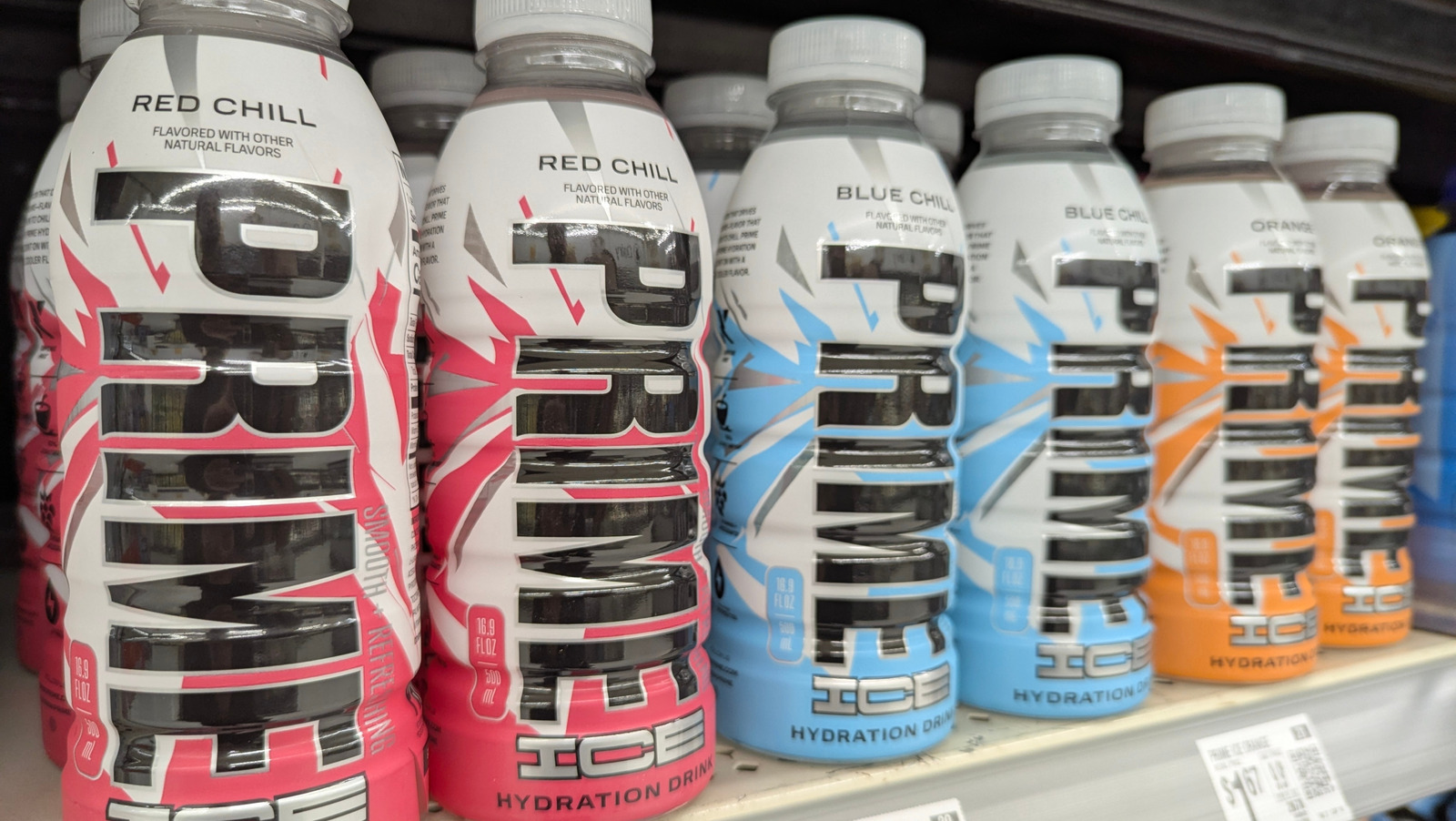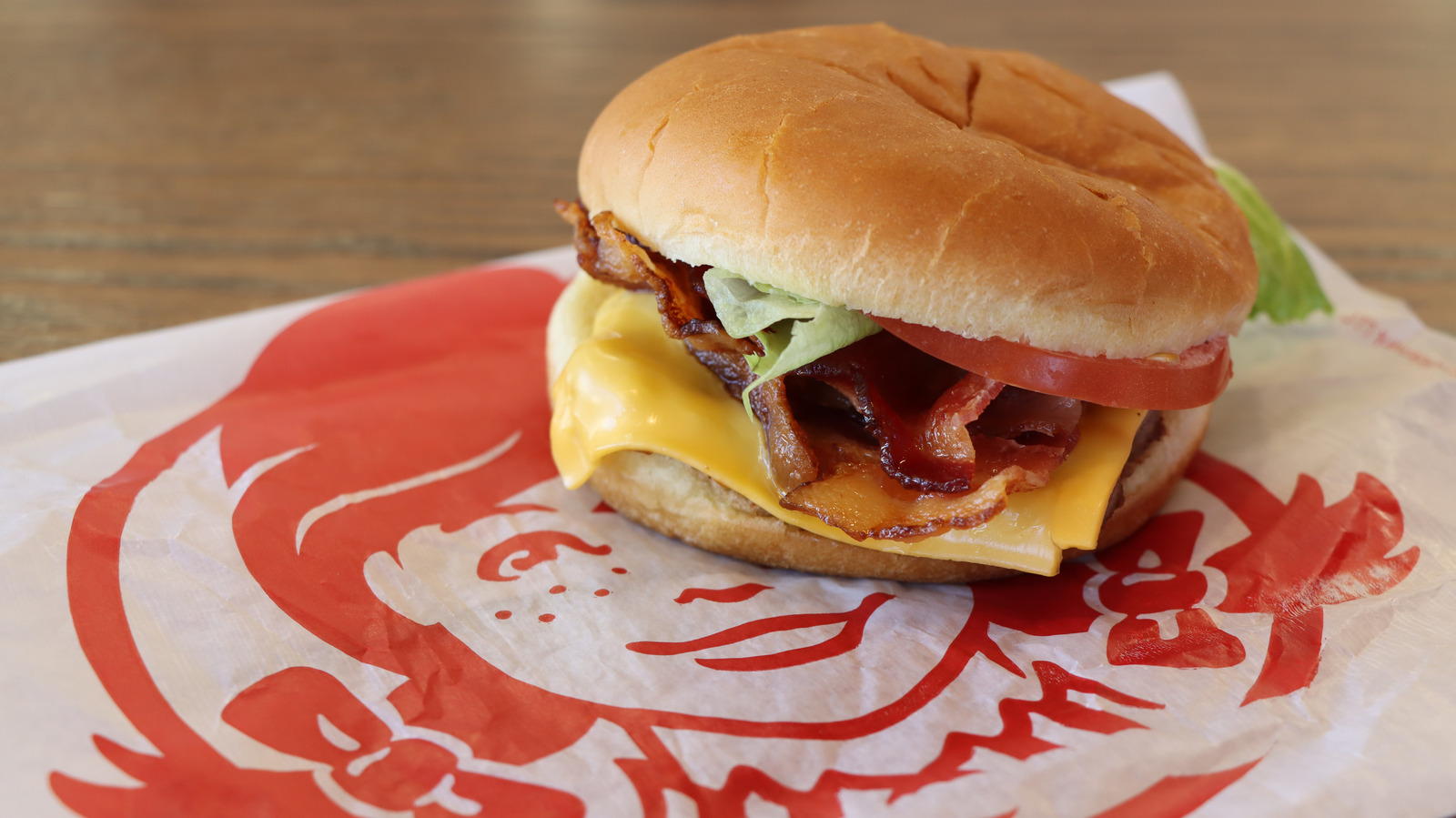McDonald's is one of the biggest fast food chains in the world. With , the burger joint's restaurant empire in the U.S.
trails only behind Subway and Starbucks. Interestingly, until early 2025, McDonald's actually held the title of the biggest fast food chain in the world, only to be overtaken by Mixue Ice Cream and Tea, a China-based fast food chain with 45,000 stores. Despite being technically dethroned, McDonald's remains hugely popular.

Not only is the restaurant easily accessible and convenient, but it also offers consistency and affordability. Whether you're in Los Angeles, Tokyo, or Rome, fast food enthusiasts can be assured that they will receive similar food and experiences at the restaurant, wherever they may be dining. However, that doesn't mean things don't occasionally go awry.
Even at a fast food chain as standardized as McDonald's, there is room for error. Whether it's a problem with suppliers, an unexpected ingredient showing up in a meal, or a toy that poses a safety risk, the fast food giant isn't immune to quality control issues — as proven by the list of recalls to hit the Golden Arches over the decades. Onions in McDonald's Quarter Pounders were contaminated with E.
coli in 2024 While a lot of food recalls are carried out as a precaution, a in 2024 was accompanied by reports that at least 104 individuals had fallen ill and 34 were hospitalized after contracting E. coli. Unfortunately, one person also lost their life after eating a contaminated burger.
The individuals affected by the bacteria lived in 14 states, highlighting the widespread impact of the recall. The source of the outbreak was traced back to one of the ingredients in the fast food item — specifically, its slivered onions. The contaminated onions had been shipped to McDonald's by fruit and vegetable producer Taylor Farms.
Once the problem was identified, McDonald's promptly stopped serving the yellow onions sourced from the supplier in the affected states. In the most severe cases, E. coli can be deadly, with symptoms developing up to 10 days after eating contaminated food.
The most common symptoms of an E. coli infection include diarrhea, cramps, fever, nausea, and vomiting. Those with serious complications can also suffer kidney failure, chronic kidney disease, and neurological problems.
McDonald's pulled its Novos McPicanha line in 2022 amid confusion over the name In the world of marketing, things are not always what they seem. Some McDonald's customers in Brazil found this out the hard way when the chain launched its new line of Novos McPicanha burgers in 2022. While the menu item was clearly named after the popular cut of beef frequently served at Brazilian barbecue restaurants, the issue was that the burgers didn't actually contain any picanha.
Instead, quoted McDonald's as claiming that the line's name was meant to "provide a new experience to the consumer, by offering unprecedented sandwiches developed with a more accentuated barbecue flavor." The Ministry of Justice gave McDonald's 10 days to explain the possible false advertising. After all, the burgers were made with a blend of beef cuts and flavoring instead of picanha.
Eventually, McDonald's apologized and pulled the burgers from its restaurants. While it wasn't exactly an explanation, McDonald's did issue a statement at the time, saying, "The brand regrets that the communication created about the new products may have generated doubts and informs that new pieces, highlighting the composition of the sandwiches more clearly, are already being produced." Undercooked Chicken McBites sparked a recall in New Zealand in 2022 If you aren't familiar with McDonald's Chicken McBites, join the club.
The bite-sized pieces of seasoned and breaded chicken breast — introduced as an alternative to KFC's popcorn chicken nuggets — were served at McDonald's locations in the U.S. only between 2012 and 2013.
During their run, they were often paired with dipping sauces such as honey mustard, ranch, and sweet chili. Despite being discontinued in the U.S.
, Chicken McBites have thrived on the other side of the globe. , with Chicken McBites being one example in New Zealand. In 2022, these little nuggets of goodness became a hot topic after a customer complained on social media that the poultry was undercooked.
The post, which included photos, was accompanied by the following tongue-in-cheek message: "Hey McDonald's Timaru didn't realize I had to cook my own chicken tonight, [it] almost walked off my plate" (via ). Further investigation revealed that the raw chicken was caused by an error involving portion sizing, which we assume threw off the cooking times. However, that was still enough to spark a recall.
Simon Kenny, a McDonald's New Zealand spokesman, told at the time, "In an abundance of caution, McDonald's stopped selling [the] product nationwide while replacement stock was distributed." Sweet 'N Sour Sauce was recalled in Ireland in 2021 due to the presence of mustard McDonald's Sweet 'N Sour Sauce dates all the way back to 1983, when the chain launched it as a pairing for its Chicken McNuggets alongside honey, hot mustard, and BBQ. While some people may find , it combines the flavors of apricot and peach, savory spices, and a hint of heat.
In 2021, the restaurant's Sweet 'N Sour Sauce hit the headlines in Ireland after it was discovered that the condiment contained an ingredient not listed on the label — mustard. The Food Safety Authority of Ireland, like the rest of the European Union, counts mustard as one of the 14 allergens that must be declared if included in a food product. For some, mustard can cause severe reactions, including anaphylaxis.
It's unclear how mustard ended up in the 25-milliliter tubs of the product handed out at the restaurants. The condiment was promptly removed from stores, with the Food Safety Authority of Ireland also issuing a warning. "This may make the affected batch unsafe for consumers who are allergic to or intolerant of mustard," it said (via ).
"Point-of-sale recall notices will be displayed in all McDonald's restaurants." Bottles of Robinsons Fruit Shoots posed a choking hazard in 2019 While Robinsons Fruit Shoots are not part of McDonald's lineup in the U.S.
, they are a popular Happy Meal option in the U.K. The drink — which contains no added sugar — was added to the chain's menu in 2003 as part of its effort to counter claims of offering nutritionally poor options for children.
In 2019, bottles of Robinsons Fruit Shoots sold at McDonald's in the U.K. became the subject of a recall due to faulty packaging.
The Britvic product was withdrawn not only from McDonald's locations but also from Tesco and Costco stores to which it had been shipped. The problem involved the cap on the bottles of the apple and blackcurrant flavored beverages. More specifically, the drinking spout could detach and pose a choking hazard.
The issue was particularly pressing since Fruit Shoots are marketed directly to kids. Britvic and McDonald's worked to recall the 200-milliliter bottles of the fruit juice after a handful of reports from customers. McDonald's released a statement in which it confirmed that it had pulled the bottles from its stores and was instead awaiting new stock.
A parasite led to a mass McDonald's salad recall in 2018 While — and actually discontinued its most recent lineup in 2020 after deciding its customers weren't interested — it previously offered healthy dishes including the likes of lettuce, cherry tomatoes, and grilled or crispy chicken as a protein. Unfortunately, in 2018, health-conscious McDonald's customers got more than they bargained for when an outbreak of Cyclospora infections was traced back to the chain's salads. More than 430 people across at least 15 states contracted the parasite, with at least 20 individuals requiring hospitalization.
The contamination was specifically linked to the Romaine lettuce and carrots included in a Fresh Express salad mix used at the Golden Arches. Unsurprisingly, McDonald's recalled salads from 3,000 restaurants across the Midwest and also decided to change its supplier. The offending lettuce was also distributed by Caito Foods and was used in wraps sold at Trader Joe's, Kroger, and Walgreens.
Cyclospora is a bowel infection characterized by stomach cramps, diarrhea, and loss of appetite. Left untreated, the illness can last up to a month. Even more disturbingly, the infection is caused by eating raw fruit and vegetables that have been exposed to human fecal matter.
Happy Meal fitness trackers were recalled in 2016 after causing burns It's pretty ironic that a fast food giant known for its calorie-laden food would promote its menu items with a device designed to track physical activity. However, this is precisely what happened in 2016 when McDonald's started distributing Step-it Activity Bands as a part of its Happy Meals and Mighty Kids Meals in the U.S.
and Canada. While the marketing move was arguably pretty strange to begin with, things only got more bizarre after the fitness trackers were linked to a string of rashes and burns. The pedometers came with plastic wristbands in a range of vibrant colors.
While it's unclear what exactly caused the irritation, plenty of people witnessed it in action. As per one user whose complaint attracted plenty of attention at the time, "If your kids have this Happy Meal toy, do not let them play with it. Cason has a burn after playing with the toy for about 8 minutes.
The toy has a red light in it that is powered by the battery on the back that possibly is the cause of the burn." All in all, McDonald's received at least 70 reports of adverse reactions to the product, with 29 million fitness trackers recalled in the U.S.
and 3.6 million in Canada. Chicken McNuggets were contaminated with plastic and vinyl in Japan in 2015 Chicken McNuggets were first added to the McDonald's menu in the U.
S. in 1983. The following year, the snack started being distributed internationally in Canada, Japan, France, and Germany.
However, it was in Japan that McDonald's Chicken McNuggets found themselves at the center of a troubling incident. In 2015, McDonald's recalled the nuggets due to potential contamination with a foreign object. The from restaurants after a customer complained that they had discovered a piece of plastic in the boneless chicken pieces.
Not long after, another customer found vinyl in their McNuggets. The fragment was substantial in size, measuring 1.5 inches.
Considering that each nugget is typically just over 2 inches long, it's unclear how this contamination was missed. The shard of vinyl was traced back to Cargill, which was responsible for running a chicken processing plant in Saraburi, Thailand. After further investigation, the processing company reported that the plastic fragment didn't come from its facilities.
Chicken and beef were recalled in China, Hong Kong, and Japan in 2014 Chicken and beef are staples of McDonald's menu, featuring in some of its best-selling items, including the Big Mac and Chicken McNuggets. In 2014, McDonald's faced a food safety scandal when an undercover investigation revealed that its supplier, Shanghai Husi Food, was repackaging expired meat and falsifying production dates. The plant also failed to follow basic food-handling practices, handling meat without gloves, and using meat that had fallen on the floor.
Shanghai Husi Food is a subsidiary of Illinois-based supplier OSI Group. At the time, the food-processing factory supplied meat and poultry not just to McDonald's, but also to Starbucks, Papa John's, and Burger King. While the other companies affected by the scandal decided to distance themselves from OSI Group, McDonald's was the exception.
The global burger chain chose to maintain its relationship with the food supplier in China, merely shifting its supply operations to another Husi food plant in China. The tainted poultry and meat were also supplied to some McDonald's locations in Japan and Hong Kong. In Japan, 20% of the poultry for the chain's McNuggets came from the Husi plant at the center of the controversy.
Meanwhile, McDonald's in Hong Kong — which initially issued a statement that it wasn't importing meat from Husi — was forced to retract this claim after the government imposed a ban on the producer. Happy Meal Hello Kitty whistles sparked choking fears in 2014 Happy Meal toys have been a major part of McDonald's branding since the late 1970s. The child-sized meals normally include a burger or nuggets, french fries, a soft drink, and a toy or activity to keep young diners busy.
Over the years, the bundles have featured promotional toys ranging from simple puzzles to more elaborate figurines inspired by popular culture like Peter Pan, Mulan, and Snoopy. These meals haven't always been as harmless as they might initially seem. In 2014, McDonald's found itself in hot water after Hello Kitty-themed whistles included in the meals were found to pose a safety risk.
In total, the chain ended up pulling 2.3 million whistles from the U.S.
market and 200,000 from Canada after determining that the plastic toy was a choking hazard. More specifically, the components inside the whistles could detach during play, potentially leading to serious injury. Unfortunately, the toy was linked to two choking incidents, one of which required medical attention.
McDonald's offered a replacement toy and a yogurt tube or a bag of apple slices to anybody who returned the defective whistle to one of its locations. Happy Meal drinking glasses were deemed hazardous in 2010 Sold at around $2 a pop, McDonald's Shrek 16-ounce glasses were released to promote the 2010 movie "Shrek Forever After." The collectibles came in four different designs, including Shrek, Fiona, Puss in Boots, and Donkey.
The glasses were produced by ARC International — a company that clearly didn't pay enough attention to the materials it used. The painted designs were found to contain cadmium, which is a hazardous substance. In particular, the Puss in Boots glass was found to contain notable levels of cadmium.
This discovery prompted McDonald's to recall 12 million glasses across the U.S., with a $3 refund offered for each item.
Cadmium is a heavy metal used in the production of rechargeable batteries, metal plating, and fertilizers. It's also found in cigarette smoke. If absorbed by the body in sufficient amounts, the toxin can cause damage to the kidneys, lungs, and bones.
It's also a known carcinogen. Luckily, the level of cadmium on the glasses was relatively low, and there were no reports of adverse health effects at the time. Listeria forced an apple slices recall at McDonald's in 2010 McDonald's started offering apple slices in 2004 as a part of its strategy to include healthier options on its menu.
Initially called Apple Dippers, the fruit wedges came with a low-fat caramel sauce. McDonald's still offers apple slices as a part of its menu, boasting that they are, surprisingly enough, made from real apples. In 2010, McDonald's issued a recall of its packaged apple slices due to potential listeria contamination.
The fruit had been shipped by Missa Bay, a subsidiary of Ready Pac Foods, before Listeria monocytogenes was discovered on the facility's production equipment. The suspect apples were distributed in 36 states and Washington, D.C.
The chain's other menu items containing apples at the time were also recalled, including oatmeal and its fruit and walnut snacks. Other companies impacted by the possible listeria contamination included Burger King, Wawa, and Wegmans. Listeria is particularly dangerous for pregnant women, the elderly, and people with compromised immune systems.
Symptoms of infection with the bacteria include headache, fever, nausea, diarrhea, muscle aches, loss of balance, and even convulsions. Fortunately, no cases of illness were linked to the apples at McDonald's at the time. Parents were warned about Happy Meal Lego toys in 1986 Designed to appeal to younger customers, Happy Meals at McDonald's come with small portions of classic menu items, a soft drink, and a toy to make the meal more entertaining.
In 1986, the fast food giant partnered with Lego, offering different block sets as part of its Happy Meals. While the sets were safety tested, there was one problem the chain failed to anticipate. It wasn't long before McDonald's was alerted by the Consumer Product Safety Commission that the small Lego pieces could pose a potential choking hazard for some of its youngest customers.
Parents who had purchased McDonald's Happy Meals with a Lego toy for children under 3 years old were asked to return the building blocks to the point of purchase and exchange them for Duplo sets, which contained bigger blocks and were designed specifically for toddlers. While the mishap could have led to a tragic outcome, no injuries were linked to the Lego sets at the time. Recommended.
Food

McDonald's Recalls That Affected Millions

Part of McDonald's global appeal is its predictability, but even the Golden Arches can't avoid the occasional unexpected product recall.















